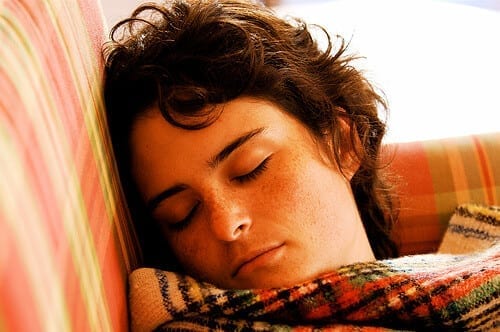The quality of your sleep can affect your quality of life, from your concentration at work to your mood. Insomnia can lead to muscle aches, exhaustion, irritability, and even fibromyalgia and other health concerns. Whether you sleep for many hours and it’s fitful, or you have difficulty falling asleep, there are natural ways to help. May is Better Sleep Month. In honor of the quieter way you spend half your time, here are some ideas to ensure you wake up refreshed each morning.
Creating a Sleep-Inducing Environment
Train your brain for bedtime. It helps to create a sleep routine and then follow it each night. This will provide your body with wind-down time, and alert your brain that it’s time to switch gears. Studies have shown that decreased lighting can lead to tiredness. The University of Massachusetts recently performed a study with 600 adults that revealed how limited lighting can lead to sluggishness. This is also why SAD (Seasonal Affective Disorder) affects so many people in the fall and winter when the days get shorter, resulting in people having low energy levels. Use this to your advantage for better sleep—at least half an hour before you plan on sleeping, turn off lights, and dim the ones you leave on.
Try spritzing your pillow and sheets with lavender essential oil. You can also dilute this product and apply directly to your skin. Try dabbing it on your temples, wrists, and neck, where you will be sure to pick up the scent. Lavender is known for its calming effect and can induce sleep, as well as help you stay asleep.
Technology and Sleep: Finding the Right Balance
Instead of leaving the TV on until you fall asleep (which can interrupt your sleep cycle later and wake up you later), try setting a timer on your ipod or computer and turn on soothing music that will shut off after a limited time. It can be a good idea to remove the TV from your room completely. Reducing electronics in the bedroom can make it a soothing sanctuary, free of distractions. Particularly if said electronics, like laptops or phones, remind you of work or cause you stress.
Are you interested in becoming a certified acupuncture professional?
Visit the links below to explore our specialized acupuncture programs at a campus near you:
Chinese Medicine Approaches to Improving Sleep
Give acupuncture a try. Chinese medicine utilizes a system of pressure points and meridians to track the function and balance of our organs, blood, and energy. It is believed that each organ houses a different aspect of our spirit. For those with insomnia or sleep apnea, the heart and liver are often out of balance, allowing the spirit to wander and disrupt the normal patterns of sleep. When the proper insomnia or sleep pattern has been identified, a TCM (Traditional Chinese medicine) practitioner can personalize a course of treatment. This may include the use of acupuncture or Chinese herbology (which is all natural), or both.
Physical Activity and Its Role in Promoting Sleep
Get active. Exercising right before bed isn’t a great idea, as it can boost your energy and make you wired. However, if you exercise earlier in the day, you will burn off calories, reduce stress, and may even wear yourself out. All of which will help you sleep. It’s better to work that stress out at the gym than to lie awake at night worrying.
Lastly, make sure your sleep environment is the most comfortable that it can be. Ideal sleep occurs between 60 and 68 degrees. Open your window and let some fresh air in. Even if it means adding an extra blanket to your bed, you might be surprised by how much temperature can affect your sleep.
SOURCES
Seattle PI: 12 Surprising Things That Make You Tired http://www.seattlepi.com/lifestyle/health/article/12-surprising-things-that-are-making-you-tired-896009.php
TCM Encourages Restful Sleep Pacific College Article Archives
Sleepbetter.org http://sleepbetter.org/home/five-simple-sleep-tips-for-better-sleep-month/
Featured Posts:

